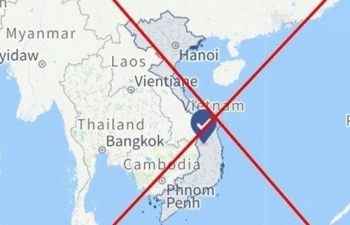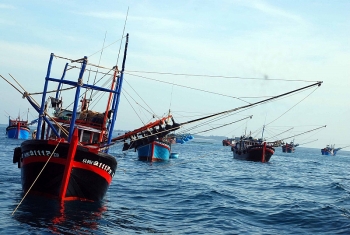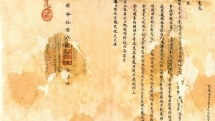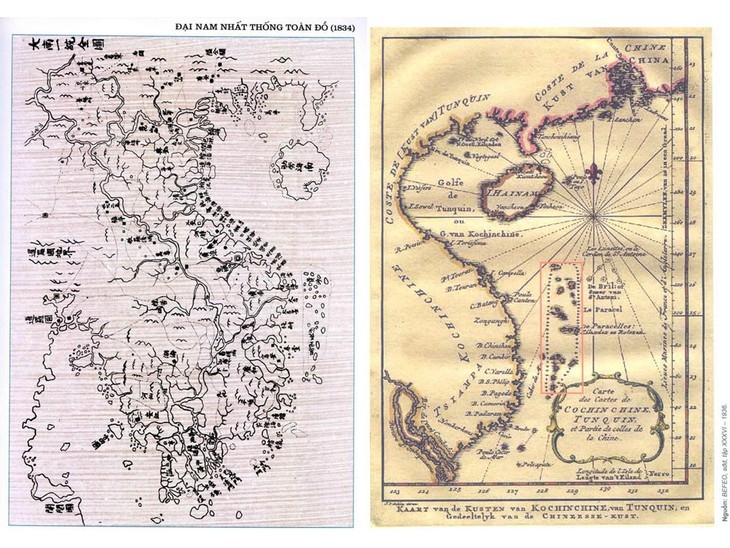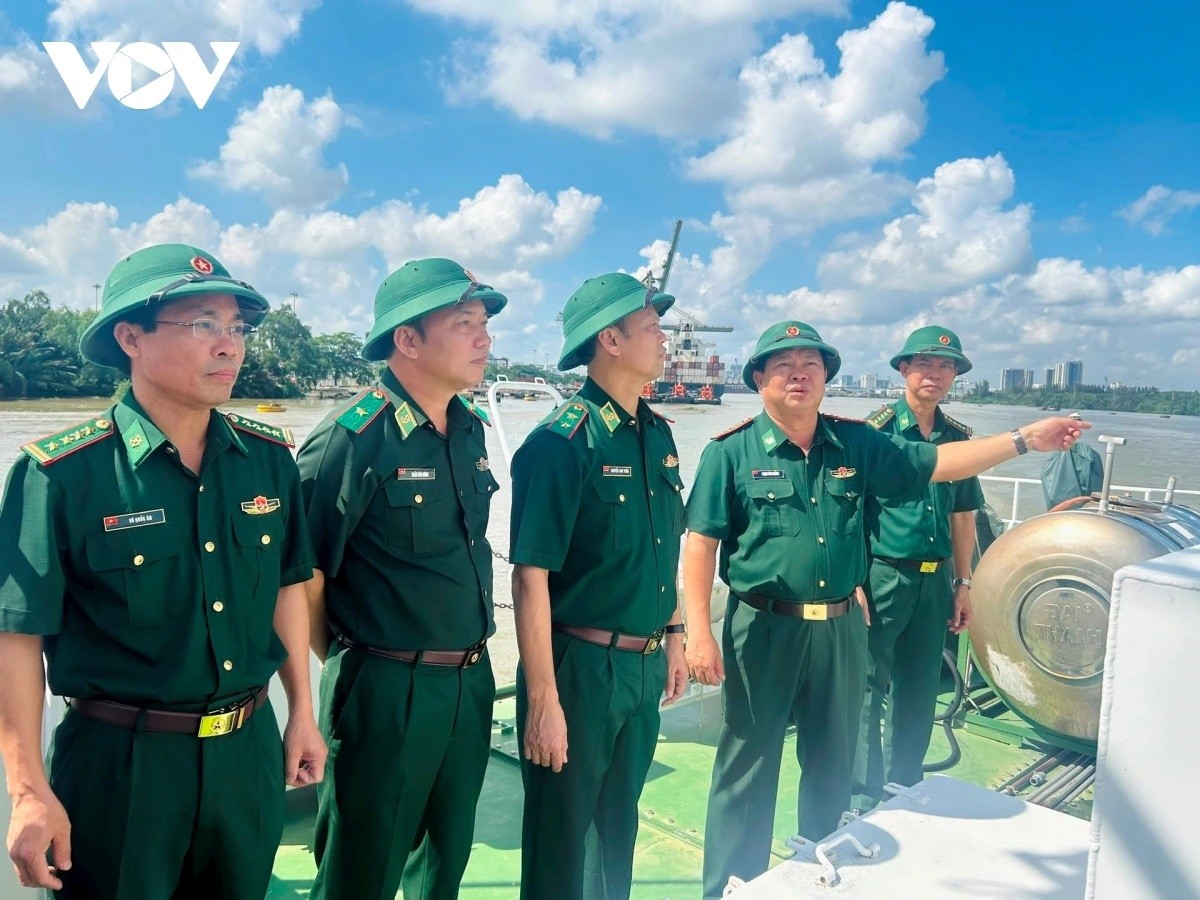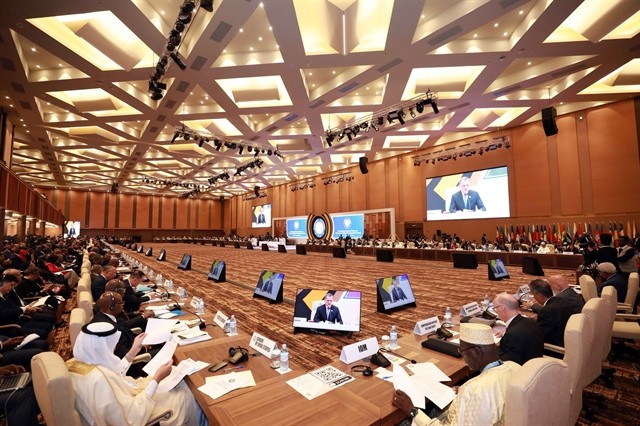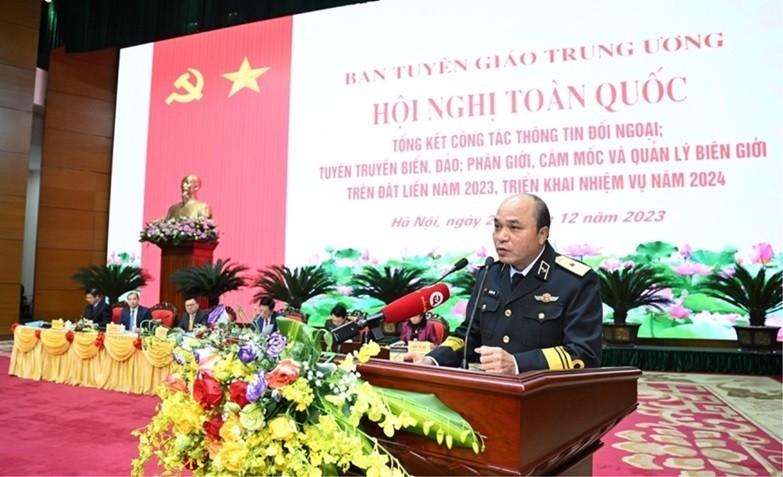Russian expert: China has no right to sovereignty over Spratly and Paracel Islands
| Facebook omitted Paracel and Spratly Islands on maps | |
| US Department of Defense criticizes China for sinking Vietnam fishing boat | |
| Da Nang to establish library for documents on Paracel Islands |
 |
| Grigory Lokshin, an expert from the Centre for Vietnam and ASEAN Studies under the Russian Academy of Sciences’ Institute of Far Eastern Studies. Source: VOV |
Grigory Lokshin from the Centre for Vietnam and ASEAN Studies under the Russian Academy of Sciences’ Institute of Far Eastern Studies made the remarks in a recent interview given to a Moscow-based VOV correspondent.
Here are extracts from the interview:
What do you think of China’s recent announcement of its decision to establish the so-called districts of "Xisha" and "Nansha" in "Sansha City" in an attempt to manage Vietnamese territory in the East Sea, namely the archipelagoes of Hoang Sa, also known as the Paracel islands, and Truong Sa, also known as the Spratly islands?
I'm very concerned regarding the establishment of two administrative hubs on the Vietnamese islands of Hoang Sa and Truong Sa, both of which originally belong to the country but were occupied by the Chinese army in 1974. The recent actions by China shows that their leaders are attempting to take advantage of the severe global crisis caused by the novel coronavirus (COVID-19) epidemic as a means of taking complete control of the East Sea and transforming it into an "inland lake".
China has no right to sovereignty over either of the islands and its actions are in violation of the UN Charter and the 1982 International Convention on the Law of the Sea, both of which were signed and ratified by China.
There is undeniable evidence that Vietnam has sovereignty over these archipelagoes in the East Sea, and this has been recognised many times by an array of international legal documents. Indeed, it was once again confirmed in a diplomatic note sent by the nation to the United Nations on March 30, along with a statement of protest issued by the Vietnamese Ministry of Foreign Affairs on April 19.
Behind the northern neighbour’s latest acts of provocation is a long-term plan to acquire three groups of islands in the East Sea, known by the Chinese as "Xisha", "Nansha" and "Zhongsha", together they are known as the "Xisha" archipelago which is directly translated from the Chinese for three islands. The fabrications put forward by both Chinese politicians and spin doctors have long been recognised by experts as legally illogical, in a similar manner that their "historical rights" in the East Sea have been devised in order to justify their illegal claims.
Do you think that China is capitalising on the global epidemic to be aggressive in the East Sea?
I, like most ordinary people in the world, are indignant that Chinese leaders have chosen to take advantage of the recent situation for their own benefit. Indeed, the attention of the entire world community is now being focused on coping with a terrible disaster, the fallout from the COVID-19 epidemic which originated in China and has subsequently spread to most countries worldwide.
During this difficult time, everyone can see that China is taking clear provocative steps in the East Sea to increase its regional expansion.
Who would have thought that China, the epicentre of the global COVID-19 pandemic, would put pressure on Vietnam, Malaysia, and Indonesia? Their probes, escorted by dozens of armed patrol boats and accompanied by services into the exclusive economic zones of these nations, underscores the Chinese government's negligent stance. These actions threaten Vietnam and other ASEAN members regardless of the ongoing negotiations to sign the Code of Conduct of Parties in the South China Sea.
How do China's actions affect the situation in the East Sea, as well as in Southeast Asian nations and the world in general?
It is clear that the recent Chinese actions have led to a more complicated and tense situation regionally.
What should Vietnam and the international community do as a means of protesting against China's wrongdoings?
In my opinion, Vietnamese leaders have carried out a responsible and reasonable policy amid the current situation. The country is doing everything it can to protect its sovereignty and legal interests in the East Sea, whilst simultaneously, the nation is making every effort to maintain peace and stability throughout the region.
For this purpose, in its capacity as the ASEAN Chair, the country is taking measures to unite the ASEAN community and offer common views to stand against China's aggressive actions.
Vietnam, once again in its role as a member of the UN Security Council, is doing everything possible to clarify its position and win the support of nations from throughout the international community. The country is keen to pursue an open and multilateral policy, which has contributed to raising Vietnam’s reputation in the international arena.
According to VOV, Vietnam has exercised its sovereignty over Truong Sa and Hoang Sa archipelagos throughout history, consistent with all international norms and laws regarding national territorial sovereignty. Evidence has been recorded in Vietnamese and Chinese historical documents through multiple feudal regimes and in many western countries, including France, Portugal, and Spain. Vietnamese maps drawn in the 17th century called the two archipelagos “Bai Cat Vang” (Golden Sandbank) of Binh Son district, Quang Ngai province. Many historical documents of Vietnam in the 17th century, the Miscellaneous Chronicles of Pacification in the Border Area (1776), The Prequel Records of Dai Nam (1844-1848), History of the Unified Dai Nam (– 1865-1875), and imperial records of the Nguyen Dynasty (1802-1945), recorded that the Vietnamese state sent Hoang Sa navy fleets to exploit the two archipelagos. Numerous old documents and maps of foreign countries contain evidence of Vietnam’s sovereignty over the Hoang Sa and Truong Sa archipelagos. The most important event confirming Vietnam's claim of sovereignty over the two archipelagos occurred in 1816, when King Gia Long sent troops to hoist a Vietnamese flag in Hoang Sa archipelago. Lords of the Nguyen dynasty regularly sent missions to manage and exploit Hoang Sa and Truong Sa archipelagos. Other Vietnamese feudal regimes organized Hoang Sa and Bac Hai naval fleets to exercise Vietnam’s sovereignty and exploit the two archipelagos. In 1884 the French administration in Indo-China continued to observe and strengthen Vietnam’s sovereignty over Hoang Sa and Truong Sa archipelagos. |
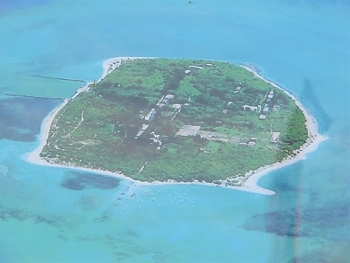 | People’s Committee of Hoang Sa condemns China’s district formations on East Sea archipelagos The People’s Committee of the Hoang Sa (Paracel) Islands District in Da Nang strongly protested China’s decision to establish the so-called “Xisha District” and “Nansha ... |
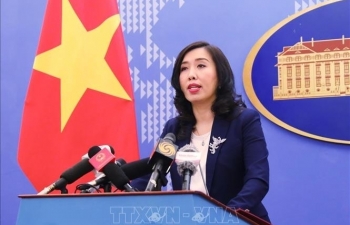 | Vietnam strongly protests China’s so-called 'Sansha City’ on Vietnamese islands Vietnam strongly protests China’s formation of the so-called “Sansha City" on Vietnam’s Hoang Sa (Paracel) and Truong Sa (Spratly) Islands, Foreign Ministry spokeswoman Le Thi Thu ... |
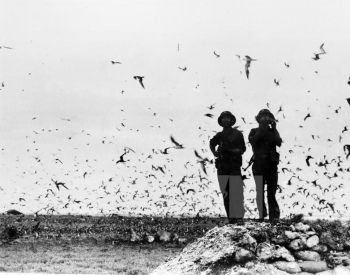 | Liberation of Truong Sa archipelago [photos] After the victory of the Central Highlands and Hue-Da Nang Campaigns, on April 4, 1975, the Central Military Commission ordered Military Zone 5 and the ... |
In topics
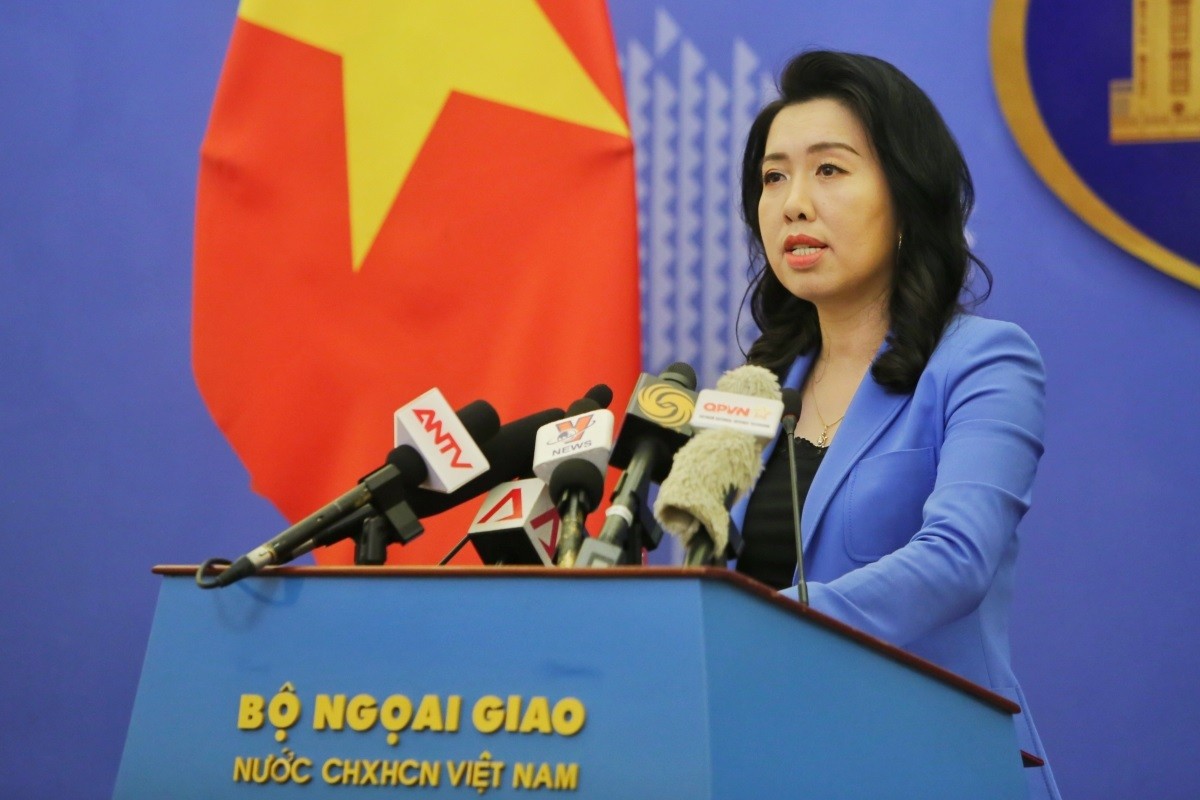 Seas and islands
Seas and islands
Vietnam Demands China Respect The Country's Sovereignty in East Sea
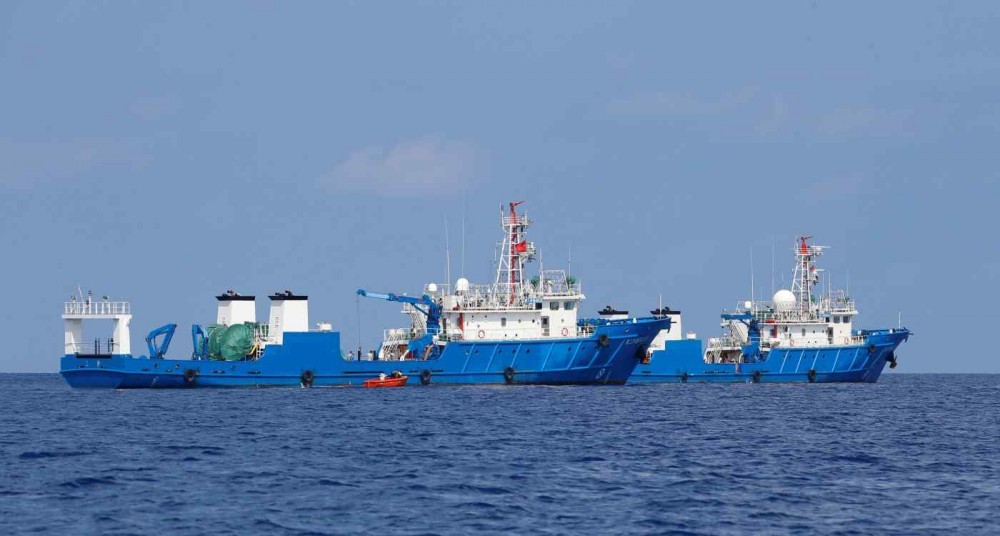 Focus
Focus
Promoting Substantive And Effective Code of Conduct in The South China Sea
 Seas and islands
Seas and islands
Vietnam's Coast Guard Creates Legal Corridor to Protect Sovereignty of Sea and Islands
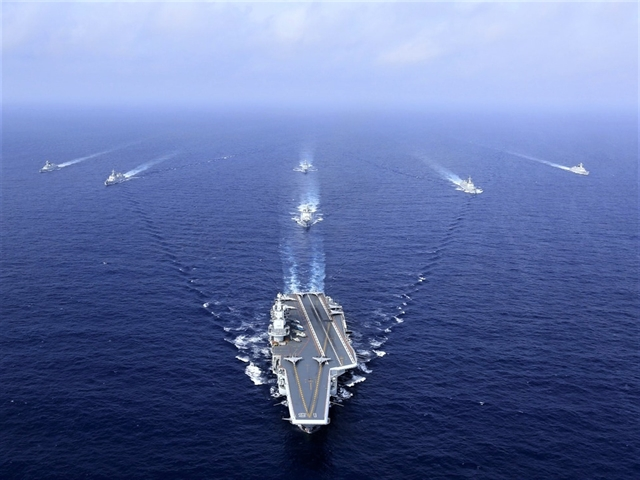 Seas and islands
Seas and islands
China announces naval drill in South China Sea (Bien Dong Sea)
Recommended
 Seas and islands
Seas and islands
Vietnam Endorses Common Voice on Ocean Jurisdiction
 Seas and islands
Seas and islands
Dialogue as Key to Settling Disputes and Advancing Law of the Sea
 Seas and islands
Seas and islands
RoK Navy Ship Pays Friendly Visit to Da Nang City
 Seas and islands
Seas and islands
Naval Region 5 Promotes Reading Culture, Fosters Patriotism
Popular article
 Seas and islands
Seas and islands
Coast Guard Region 2 Command Hosts Philippine Coast Counterpart
 Seas and islands
Seas and islands
Vietnam - Thailand Navy: Coordination to Well Address Problems at Sea
 Seas and islands
Seas and islands
Honoring the Fallen: Incense Offering for the 37th Anniversary of Gac Ma
 Seas and islands
Seas and islands

